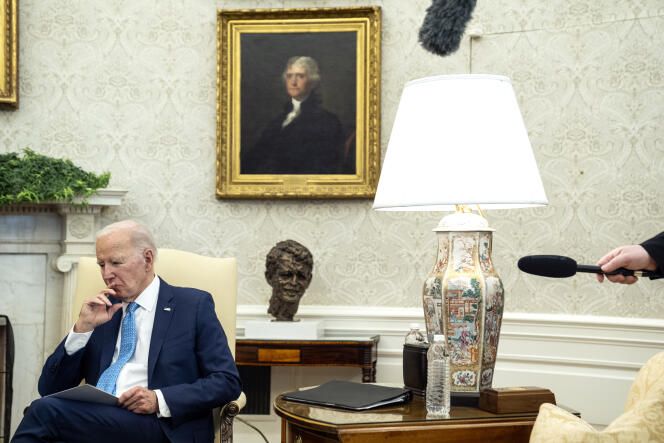


Sleep apnea, arthritis, gastro-oesophageal reflux, but neurologically, there is nothing to report: Joe Biden is "a healthy, active, robust 81-year-old," capable of carrying out his duties as head of the world's leading power. This is the conclusion of the six-page medical report signed by his doctor, Kevin O'Connor, and made public on February 28. It is a highly detailed document but one that does not answer questions about the Democratic candidate's ability to face another presidential campaign against 77-year-old Donald Trump.
According to a New York Times-Siena College poll released on Saturday, March 2, 19% of Biden's 2020 voters believe his age has become prohibitive. These issues are so prevalent that they seem to obtrude the perception of his accomplishments, which the president plans to highlight in his State of the Union address to Congress on Thursday, March 7.
For the past two years, Biden's popularity has stagnated at around 40%. His advisers are hoping for a turnaround in the run-up to the November elections, thanks to a twofold boost. The first element is an awareness of the dangers of another Trump presidency, and the second is the impact of his reforms being more widely felt. These include investments in infrastructure (bridges, roads, etc.), as well as in key sectors such as the green economy, which are taking time to get off the ground.
Similarly, the president's team wants to believe in the support of educated youth for the successive cancellations of student debt. From this point of view, the emotion caused by the war in Gaza and the criticism leveled by a portion of the left against his administration, which refuses to call for an immediate ceasefire, would play only a marginal role. This optimism is also fueled by the Democratic victories accumulated locally, state by state, since the Supreme Court's abolition of abortion as a constitutional right in June 2022, a major mobilizing issue for the progressive electorate.
So why change a winning team? By the time of his victory in the 2020 Democratic primaries, Biden, despite being seen as a temperate stalwart of the Democratic Party, achieved a genuine feat. He succeeded in rallying all the left-wing factions behind his candidacy, in particular the supporters of Bernie Sanders, by integrating their representatives and ideas.
This feat continued in Congress during the first two years of his term, with highly disciplined Democratic elected representatives who did not give in to the temptation of a media stunt with no follow-through. Today, the progressive wing is lining up behind Biden's re-election, in spite of itself and in spite of Biden, as if there were no other choice. "Many in the party would have welcomed it if Biden had withdrawn on his own, because of the risk posed by his age," said William Galston, Brookings Institution expert and Wall Street Journal columnist. "But they have vivid memories of past divisions among Democrats, including Ted Kennedy's challenge to incumbent president Jimmy Carter in 1980, the resentment that fueled, the difficulties in raising funds, the delay in planning the election itself. No one wants to repeat that trauma."
You have 66.37% of this article left to read. The rest is for subscribers only.
